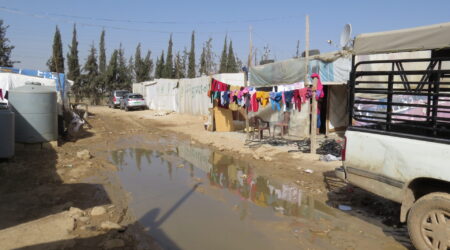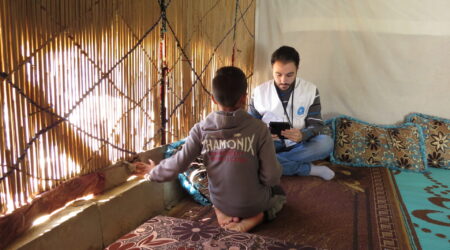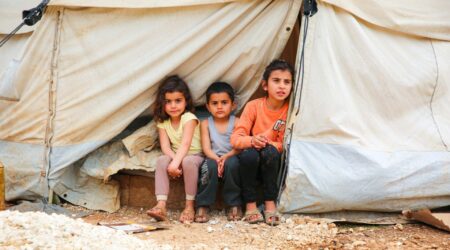Global Mental Health Research
Millions of children are forcibly displaced by war and other emergencies. Our research aims to better understand displaced children's mental health and well-being in order to improve prevention and care.
This website provides information on global mental health research led by Prof Michael Pluess and his collaborators.
The research includes the investigation of psychosocial and biological factors associated with psychological resilience, the reliable assessment of mental health problems, as well as the development and evaluation of psychological interventions.

From the blog
Review: Understanding the challenges of administering a structured a pschiatric diagnositc interview to war-exposed children in a humanitarian setting
Reliable mental health assessment tools are essential for supporting children affected by conflict and displacement. This article reflected on the experience of adapting and administering a structured diagnostic interview, the MINI Kid, for Syrian refugee children and adolescents living in informal refugee settlements in Lebanon. This provided insights into the need for culturally and contextually sensitive approaches to ensure accurate, ethical, and effective care.
What Drives Change in Children and Adolscents Receiving Telephone-Delivered Mental Health Intervention?
Although mental health interventions in humanitarian settings are expanding rapidly, the mechanisms driving change remain poorly understood. This study used a telephone-delivered version of the Common Elements Treatment Approach (CETA) with Syrian refugee children and adolescents. This revealed that treatment components, including trauma- and depression-focused modules, were drivers of change, with external circumstances and life events also playing a crucial role in shaping treatment outcomes.
A Pilot Randomised Controlled Trial of Delivering Mental Health Care by Telephone in Humanitarian Settings
The pilot study investigated whether trained lay counsellors could deliver effective therapy over the phone to Syrian refugee children in Lebanon. The results reveal that remote therapy not only reduces mental health symptoms but also helps to overcome barriers such as transport, cost and stigma, offering a lifeline in humanitarian settings.
Understanding factors of risk and resilience in Syrian refugee children
Syrian refugee children face immense psychological challenges, yet not all succumb to mental health difficulties. This multi-system analysis explored how biological markers, such as stress hormone levels in hair and genetic profiles, might help predict which children are most vulnerable and which show resilience.
Tracking Resilience in Syrian Refugee Children and Adolescents
This study followed ~1,000 Syrian refugee children and adolescents living in Lebanon to understand how their mental health changed over the time span of a year. The findings highlight that resilience is not a fixed trait and is one that is deeply influenced by support systems. Such insights should be utilised to inform holistic interventions aimed at improving the mental health of refugees.
Mental Health Research among Syrian Refugees: Challenges and Solutions
Conducting robust research on the mental health of Syrian refugees is both essential yet logistically challenging. Such research is critical for informing the planning and provision of effective support services for this population. This article presents two research initiatives – BIOPATH and T-CETA, as featured on the website – and discusses the methodological challenges encountered and lessons learned from conducting research in this context.
Partners and funders



















